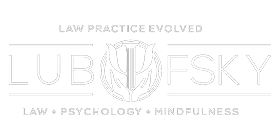Below I have summarized five suggestions to help clients move more mindfully through the divorce process: Settle In contemporary American society, most of us are highly conditioned to avoid or turn away from difficult experiences, emotions, etc. The fracturing of a family unit or severance of a love relationship can precipitate fear about the future, […]
Category: Holistic Divorce
The issue of spousal support, especially when involving highly disparate incomes of a separating couple, is one of the most challenging areas of the divorce process. Underlying the complexity are fundamental notions of “fairness” that may significantly differ for each spouse. To successfully deal with the issue of spousal support in a way that minimizes negative […]
In conducting more than two dozen mediation sessions in Alameda County Superior Court, what is most glaringly apparent is the extent to which mediation participants enter mediation with all-defined, hardened positions. Moreover, these individuals almost always are convinced that their interpretations of some event or events that have taken place in the past are the […]
Partners facing marital breakdown typically are confronted with deep fears and insecurities that can trigger a wide range of emotional reaction. Divorce often has serious implications in family relationships, finances, daily routines, and can shatter one’s sense of security. Divorce involving children can magnify these challenges as well as pose serious long-term harmful consequences especially […]
